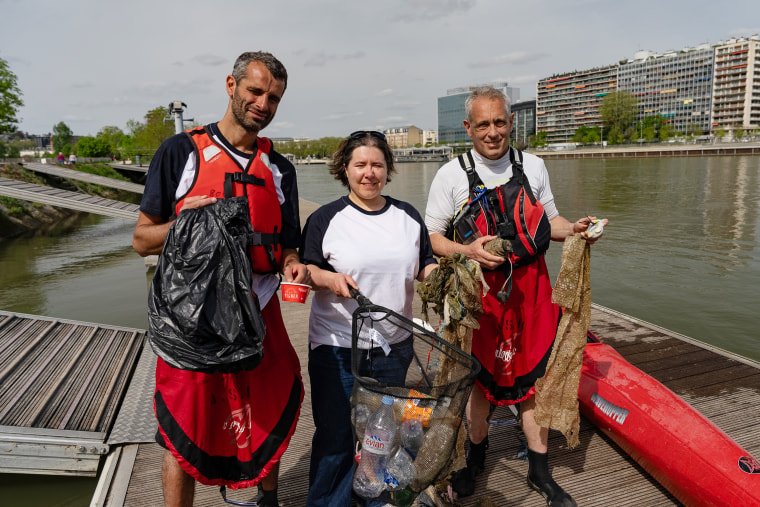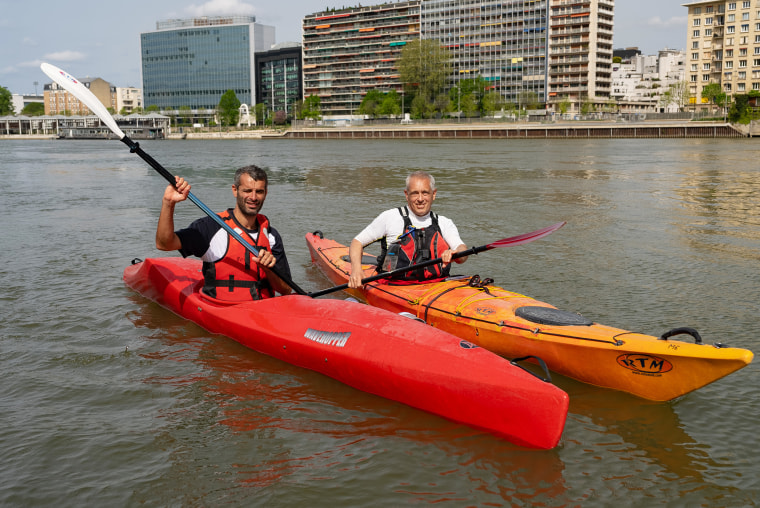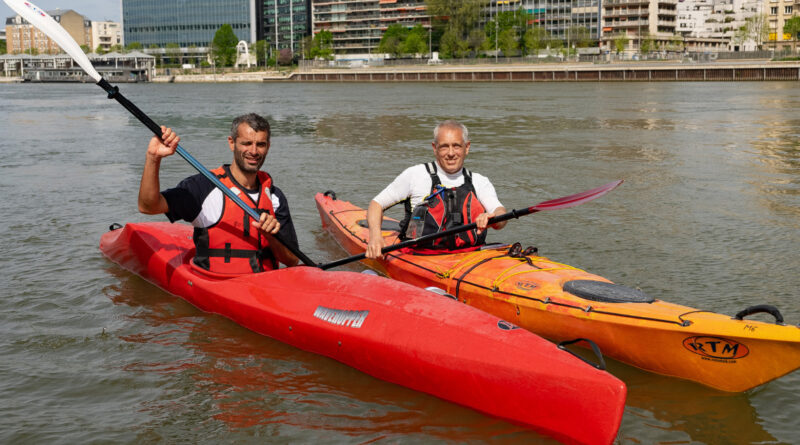Inside the Olympic effort to clean up the River Seine — and why it may be spoiled by a rainy day
PARIS — Meandering down the Seine River, the light breeze, gentle current and the sun’s glistening rays weren’t the only things the three kayakers were hoping to catch on a warm spring day — they were also on the hunt for garbage.
By attaching nylon stockings to the side of their kayaks, they scooped up even the smallest fragments of plastic, as well as the everyday detritus of life in the French capital that washes to the river’s surface every time it rains. The members of the Arc en Seine Kayak club then sent what they had collected to be tested for bacterial levels.
“My kayak capsized this morning and I’m OK,” a laughing Paul Maakad told NBC News on Sunday, at the Pont de Sevres in central Paris.
But while Maakad, 40, and his fellow boaters said they were not scared of getting into the river, with less than 100 days to go before the 2024 Paris Olympics, fears are growing that events like the marathon swim, the triathlon and the paratriathlon could be postponed or canceled because of high pollution levels, or that the flotilla-based opening ceremony could be affected.

Earlier this month, Tony Estanguet, the president of the Paris Organizing Committee, expressed confidence “that it will be possible to use the Seine,” but admitted that the swimming leg of the triathlon could be canceled if pollution levels are too high. “It’s what we want to avoid, of course,” he said.
His comments came days after a French charity warned that bacteria, including “pollution of fecal origin,” was far higher in the river than permitted.
As part of an ambitious plan to open up the Seine to public swimmers by 2025 — after being illegal for 100 years because of dangerously high pollution levels — France has spent 1.4 billion euros ($1.5 billion) on altering and upgrading the city’s antiquated sewage system, which now includes a 13-million-gallon overflow tank called the Austerlitz Basin.
But in August, the swim portion of the test marathon event was canceled because the river failed pollution tests.
As the starting gun to the games approaches, Fluidion, one of the companies contracted by the city of Paris to monitor bacteria in the water exclusively shared their findings with NBC News.

A sample of water collected by the Pont Alexander III bridge, in the city’s center, showed e-coli levels two-and-a-half times the level considered safe for swimming.
But that in itself isn’t necessarily a concern for the Games themselves, according to Dan Angelescu, the CEO of Fluidion, a tech company that develops water testing products.
“In the summer when there is a lot of sunlight, when the water flow, river flow rate is really low, and when there is no rain for several weeks, let’s say two or three weeks without rain, you can actually reach really good water quality conditions,” he said in an interview this month.
But he added that even a small rain event could make E. coli levels shoot up.
“You may swim in very polluted water and nothing may happen to you, or you may swim and you may develop itches, or you may develop infections, or you may catch a strain of E. coli that may be pathogenic,” he said. “Those aren’t very common, but they exist, and that could get you really sick.”




